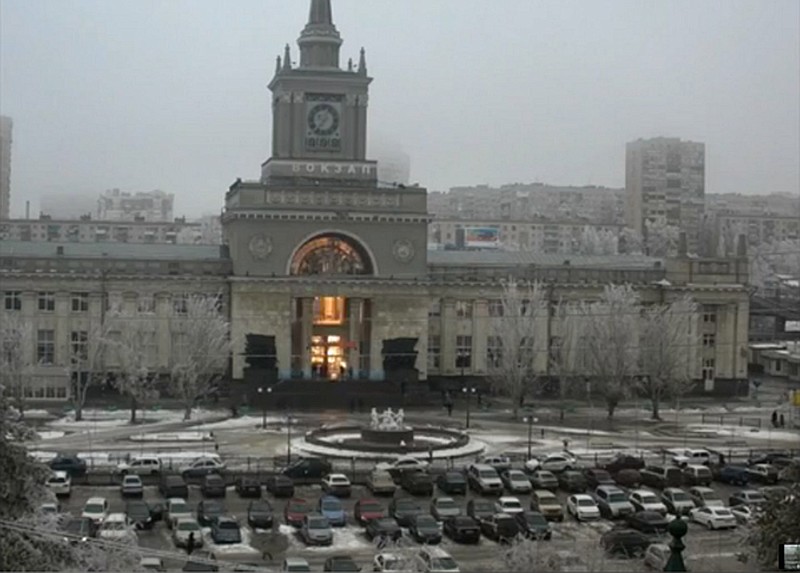MOSCOW (AP) - A suicide bomber struck a busy railway station in southern Russia on Sunday, killing at least 15 people and wounding scores more, officials said, in a stark reminder of the threat Russia is facing as it prepares to host February's Olympics in Sochi.
No one immediately claimed responsibility for the bombing in Volgograd, but it came several months after Chechen rebel leader Doku Umarov called for new attacks against civilian targets in Russia, including the Sochi Games.
Suicide bombings have rocked Russia for years, but many have been contained to the North Caucasus, the center of an insurgency seeking an Islamist state in the region. Until recently Volgograd was not a typical target, but the city formerly known as Stalingrad has now been struck twice in two months - suggesting militants may be using the transportation hub as a renewed way of showing their reach outside their restive region.
Volgograd, which lies close to volatile Caucasus provinces, is 550 miles south of Moscow and about 400 miles northeast of Sochi, a Black Sea resort flanked by the North Caucasus Mountains.
The bombing highlights the daunting security challenge Russia will face in fulfilling its pledge to make the Sochi Games the "safest Olympics in history." The government has deployed tens of thousands of soldiers, police and other security personnel to protect the games.
Through the day, officials issued conflicting statements on casualties. They also said that the suspected bomber was a woman, but then reversed themselves and said the attacker could have been a man.
The Interfax news agency quoted unidentified law enforcement agents as saying that footage taken by surveillance cameras indicated that the bomber was a man. It also reported that it was further proven by a torn male finger ringed by a safety pin removed from a hand grenade, which was found on the site of the explosion.
The bomber detonated explosives in front of a metal detector just beyond the station's main entrance when a police sergeant became suspicious and rushed forward to check ID, officials said. The officer was killed by the blast, and several other policemen were wounded.
"When the suicide bomber saw a policeman near a metal detector, she became nervous and set off her explosive device," Vladimir Markin, the spokesman for the nation's top investigative agency, said in a statement earlier in the day. He added that the bomb contained about 22 pounds of TNT and was rigged with shrapnel.
Markin later told Interfax that the attacker could have been a man, but added that the investigation was still ongoing. He said that another hand grenade, which didn't explode, was also found on the explosion site.
Markin argued that security controls prevented a far greater number of casualties at the station, which was packed with people at a time when several trains were delayed.
Markin said 13 people and the bomber were killed on the spot, and the regional government said two other people later died at a hospital. About 40 were hospitalized, many in grave condition.
Earlier in the day, Lifenews.ru, a Russian news portal that reportedly has close links to security agencies, even posted what it claimed was an image of the severed head of the female's attacker. It even said the attacker appeared to have been a woman whose two successive rebel husbands had been killed by Russian security forces in the Caucasus.
Female suicide bombers, many of whom were widows or sisters of rebels, have mounted numerous attacks in Russia. They often have been referred to as "black widows."
In October, a female suicide bomber blew herself up on a city bus in Volgograd, killing six people and injuring about 30. Officials said that attacker came from the province of Dagestan, which has become the center of the Islamist insurgency that has spread across the region after two separatist wars in Chechnya.
As in Sunday's blast, her bomb was rigged with shrapnel that caused severe injuries.
Rights groups say that authorities' tough response involving arbitrary arrests, torture and killings of terror suspects has fueled the rebellion.
The Kremlin replaced Dagestan's provincial chief earlier this year, and the new leader abandoned his predecessor's attempts at reconciliation and his efforts to persuade some of the rebels to surrender in exchange for amnesty.

